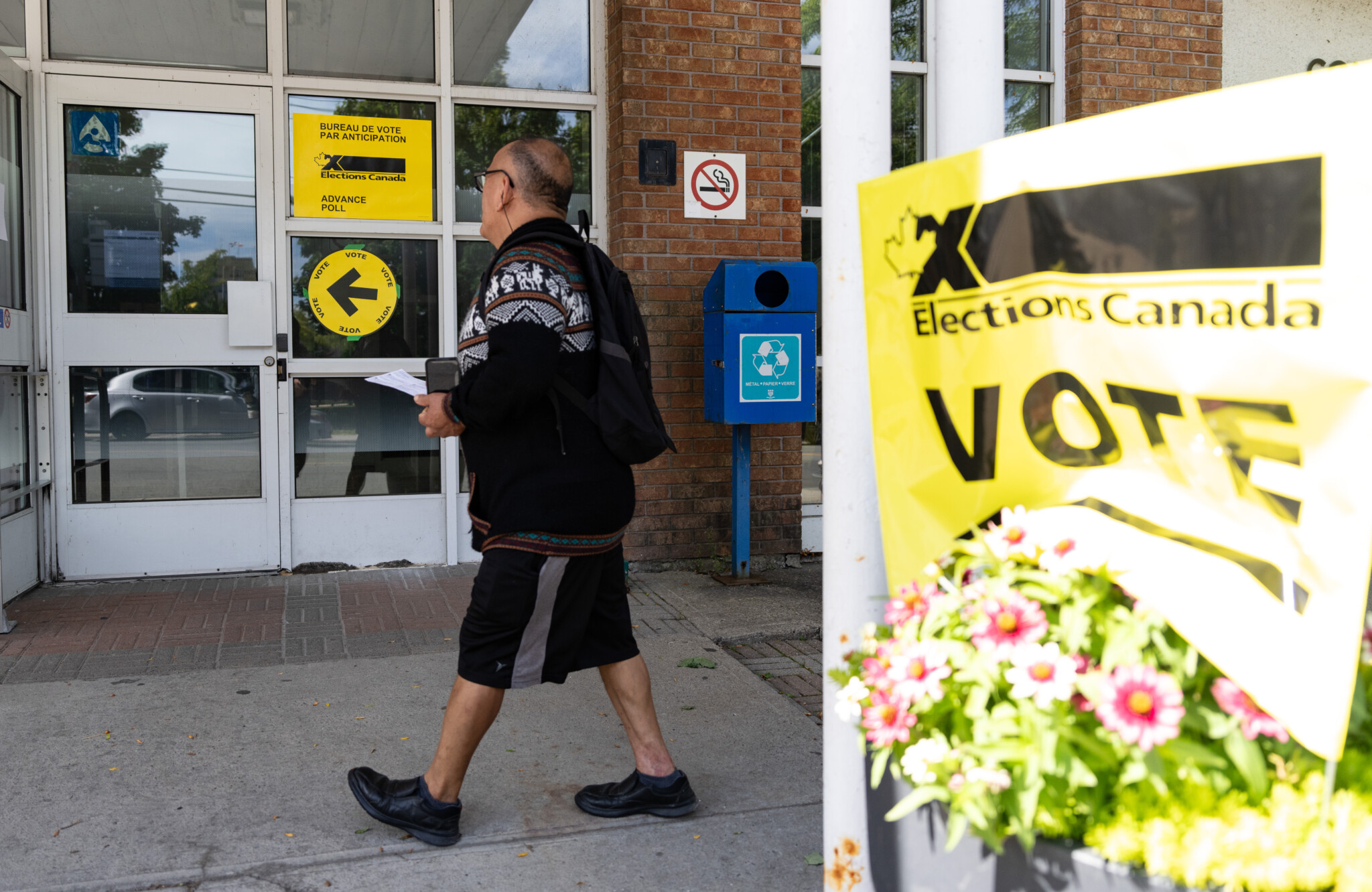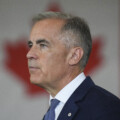As our federal elected representatives prepare to once again convene in Ottawa next week, a recent interaction in my neighbourhood may serve as a harbinger for the exhausting political discourse headed our way.
Several weeks ago, my neighbours congregated in our several-hundred-strong Whatsapp group to celebrate a rare win for sanity as the Ontario government announced our local, publicly-funded drug den would be closing. In the ensuing discussion, one person shared her view that while the announcement was an important step in the direction of public safety, the motivation for it was likely driven more by a desire to woo voters than to keep us safe.
What if it was? Why is that somehow bad? Good policy and good politics aren’t mutually exclusive and indeed are arguably regularly fully aligned in a democracy. Moreover, the notion politicians should ignore the will of their constituents is an odd expectation. Her comment has stuck with me, reverberating as an example of the success of fear-mongering by our pundit class, as they ominously warn of our “recent trend towards populism.”
My neighbour’s comment isn’t just grating because it reflects the lazy tendency to use “populism” as a vague and trite catch-all smear against popular conservatives broadly (which it is), but because it speaks to a deeper problem.
These same politicians and pundits who decry the supposed “trend towards populism” are actually arguing something much more mendacious than a simple partisan slur. The argument they are making is, at its core, an argument against democracy.
Representative democracy rests on the idea that each voter casts a ballot for the member who best represents their views and will vigorously advocate for their interests. Voters have never delegated their ultimate authority over the policies that govern them to an omnipotent class of experts, academics, pundits, politicians, or anyone else. If the politicians they elect do a poor job, before too long voters have the right to fire them and give those jobs to people who will do what they want, within the bounds of the law.
This is not to say that all populism is good, or even innocuous. When used merely as a weathervane, absent principle, it amounts to a weak and ambiguous divination, bound to confound and annoy over time. But when aligned with solid first principles, the populism we hear so often derided amounts to a harmless recognition that voters, and their views, matter most in policy making.
There are any number of pressing issues that clearly matter to voters, that despite being legitimate, have been deemed too gauche or déclassé to be considered by our elite political class. At its best, populism simply recognizes that voters have a much wider field of legitimate issues to consider than many would like to acknowledge. As Cas Mudde, an academic who focuses on populism has put it, “populism brings to the fore issues that large parts of the population care about, but that the political elites want to avoid discussing.”
To return to the example that I started with, when a policy—say, for example, publicly funded harm-acceleration drug dens—fails so spectacularly that voters rise up against it, should we not expect our elected representatives to care and swiftly respond to their constituents? And if they do not care, and do not listen, it is the hallowed right of every voter to speak up in a way that no politician can miss: at the ballot box.
But it’s not enough to just vote. Citizens must be more cognizant of the extent to which the authority we bestow on our politicians is being redistributed elsewhere. There’s been a trend over the past several years to quietly usurp the sovereign right of citizens to choose the policies that will govern them. It has been incremental and often disguised, coded in language about trusting or empowering experts, all while shifting power to unaccountable technocratic and administrative state agencies that grow inexorably in size, cost and (over)reach.
Today we see digital platforms curtailed and restricted, to the detriment of users and creators. The productive sectors of our economy have been forced into regulatory straight jackets—curtailing their hiring, their prospects, and their ability to generate economic growth. Crime is getting worse, based on a bizarre preference for criminals that virtually no one agrees with, and no one recalls voting for. The people responsible for security vetting at our borders are apparently led by this guy.
The pandemic provides almost too many examples to name. We handed dominion over every aspect of our society to an army of public health bureaucrats, who typically spend their time banning smoking cessation products from our corner stores, while simultaneously advocating that unlimited taxpayer-funded opioids should be pumped into our streets. Who had the final word on the decision to lockdown, elected ministers of health or appointed public health officers?
Similar is the trend to empower environmental activists to ban the most basic of modern conveniences, forcing us to drink through paper straws, a trend that while ultimately trivial, is nonetheless incredibly irritating—not to mention something that no one has ever been elected with a mandate to do. (I am reminded of an argument from American movie critic Sonny Bunch, who wrote: “environmentalists make good movie villains, because they want to make your real life worse.”)
Do you question or oppose these policies, all of which have been advanced by deep-thinking experts and academics? Well then, you’re a simpleton, and supporter of scary populists, they say.

Conservative Leader Pierre Poilievre grabs an apple during a rally in Montreal, Wednesday, June 19, 2024. Christinne Muschi/The Canadian Press.
Nationally in Canada, the “trend towards populism” slur is aimed most often at Pierre Poilievre, who continues to resonate with voters from every walk of life, from coast to coast. And how does he conform to this slur, in the eyes of those who spit the populist label on the sidewalk as he walks past?
Well, he cares about the issues ordinary Canadians actually care about, and want the people they elect to care about.
Putting an end to the carbon tax, which has contributed to the devastating cost of living crisis that has resulted in record food bank visits by Canadians each of the last three years. Fixing the budget, broken almost beyond repair by the Trudeau government’s profligacy. Building enough homes so Canadians don’t have to live in tents or their parents’ basements until they are 40. Putting a stop to the bizarre and twisted preference for criminals over victims in our society, where nearly every serious crime seems to be committed by someone who was inexplicably out on bail. All of these positions are cited frequently as evidence of this ominous “populism” meant to frighten Canadians back into line.
When did the views of the electorate stop mattering to our ruling class?
It’s hard to know. But one thing is certain: With the House of Commons resuming its duties next week, readers should expect to read in their newspapers of record an increasing volume of ominous references to populism and its growing tide.
For far too long in this country our federal government has been run by a cadre of people who hold disdain for common sense and the views of the ordinary voters who elect them. Through a smoke screen of talking points, a pliable media, and an aligned official/expert class they have prolonged the life of the current government, long past its best-before date.
The results speak for themselves. Governance by and for the expert class has made Canadians less safe, less wealthy, and with fewer prospects for their futures and the futures of their children. Every policy on this road to perdition has been championed by large numbers of supposedly serious people, and yet nearly everything is worse.
In the next year or so, in the great democratic tradition, the true sovereign decision-makers of Canada will have the opportunity to pass judgement on the record of governance by the gilded class. In the face of being told more crime is evidence of justice and that our hard-earned paycheques coming up short every month is evidence of abundance, the powerful “populace” of common Canadians can simply say “no”, and fire them all.
Vivat vox populi.







